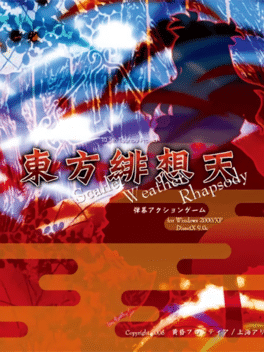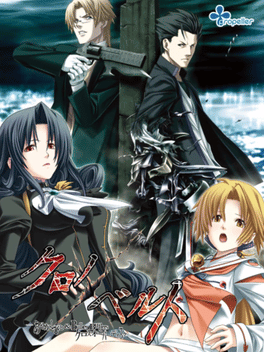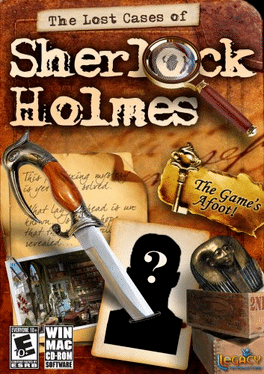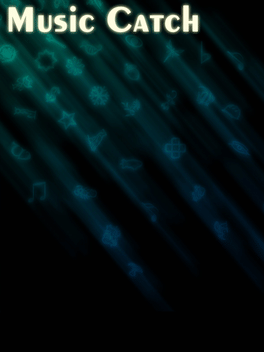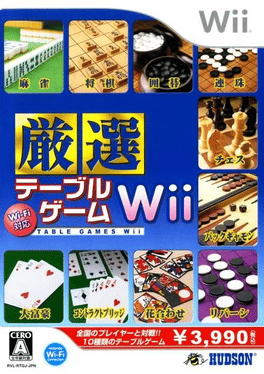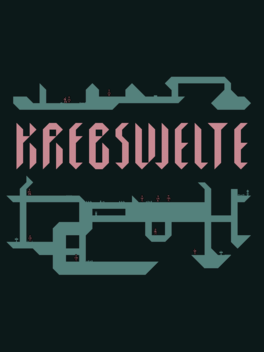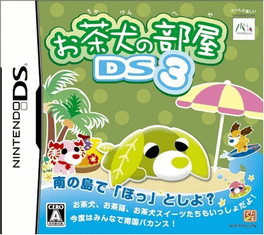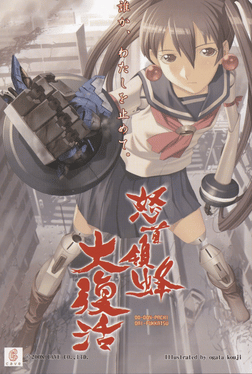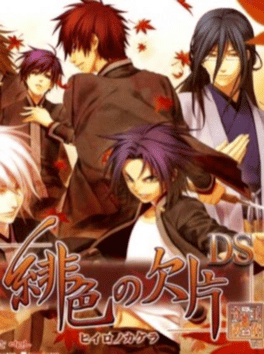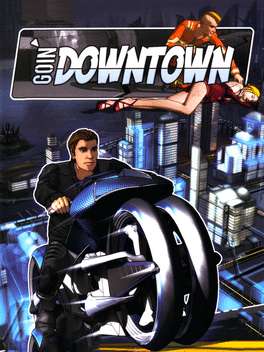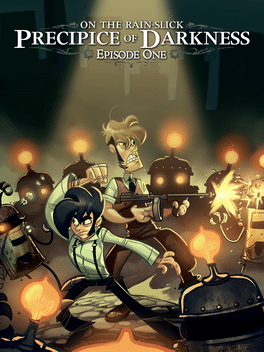New Games - Page 9978
-
Lost Odyssey: Seeker of the Deep!
2008
Seeker of the Deep! is a downloadable content pack for Lost Odyssey. It provides a new dungeon, Professor K's Dungeon found in the Experimental Staff Revisited. -
Touhou Hisouten: Scarlet Weather Rhapsody
2008
star 7.9Following the events of Mountain of Faith, summer arrives in Gensokyo with a fanfare of weird weather. Shortly after the abnormal weather appeared, there was a large earthquake that leveled the Hakurei Shrine, causing Reimu Hakurei to investigate the cause of the incident. -
Love
2008
-
Chrono Belt: Ayakashibito & Bullet Butlers Crossover Disc
2008
A crossover visual novel by Propeller. -
Meet and Fuck Leila
2008
Meet and Fuck Leila
2008
Hey dude, Are you ready tonight for a new sexual adventure? Well, Listen to me. Do you see that pretty babe next to a bar table. I didn't see her here before. But I heard her name is Leila. Come to Leila and try to talk. Be smart enough and take her to your home. I think It will be a hot night with a hot babe. -
The Lost Cases of Sherlock Holmes
2008
The Lost Cases of Sherlock Holmes is a lavish mystery adventure game, featuring 16 unique cases of forgery, espionage, theft, murder and more. Investigate hundreds of potentially relevant clues and lively characters in each mysterious story. Explore 40 historically accurate locations around London, as you track down suspects and evidence. -
QQ Dazzling Dance
2008
-
Music Catch
2008
Music Catch
2008
Catch the colorful shapes that appear when the music plays! The more shapes you collect, the more points you get. Yellow shapes give you a bonus and multiply your points, but watch out for red shapes! -
Wi-Fi Taiou: Gensen Table Game Wii
2008
Wi-Fi Taiou: Gensen Table Game Wii is a Miscellaneous game, developed and published by Hudson, which was released in Japan in 2008. -
Krebswelte
2008
Krebswelte
2008
Krebswelte is a game, created as an entry into TIGSource's "Procedural Generation" competition. The player controls a mercenary who, on each level, must find a key and make his way to the exit. Each level is a random, chaotic assortment of squares; the mercenary can move around thanks to his incredible jumping abilities, and his gun which allows him to destroy walls. A gun has unlimited ammo, but it takes a while to reload when its clip runs out. Destroyed wall sections re-appear after a while. -
Snakes Subsonic
2008
Snakes Subsonic
2008
Snakes Subsonic is a sequel to the N-Gage's Snakes, for N-Gage 2.0., a service for mobile phone games. -
Ochaken no Heya DS 3
2008
-
Hiiro no Kakera DS
2008
Hiiro no Kakera DS
2008
A bundle of both the first Hiiro no Kakera game and Hiiro no Kakera Ano Sora no Shita de for Nintendo DS. -
Goin' Downtown
2008
Goin' Downtown
2008
An explosion outside 21st century New York cop Jake McCorly's apartment sets up a larger mystery in this scifi, cel-shaded adventure game. -
Glory of Heracles
2008
Glory of Heracles
2008
star 6.6Glory of Heracles features the eponymous Greek hero in a pick-up-and-play role-playing game that has a rich storyline in a Greek motif and a deep battle system. The story begins when Heracles washes up on a beach with amnesia. Players must journey far and wide to figure out Heracles' story and unravel the mysterious pasts of the other main characters in this new adventure. The game uses ancient Greece as its backdrop, and players can visit cities like Sparta and Athens on their travels. -
DoDonPachi Resurrection
2008
star 7.7The past is being altered. An android, known as Next EXY, has traveled one thousand years back in time. Your task is to stop NEXY and the other Elemental Daughters who were built in the image of the Elemental Dolls who once protected humanity. What is NEXY’s intent? Should you attack what you shouldn’t understand? Orders are orders, and Col. Godwin Longhener is not to be ignored. The legendary bullet-hell shoot-’em-up series has come to Steam with DoDonPachi Resurrection from CAVE Co., Ltd., the powerhouse behind revered bullet-hell shooters such as Mushihimesama and Deathsmiles. -
Chessmaster Live: Breaking the Lines
2008
Enjoy new ways to play chess with this original mini-game: with Breaking The Lines, move your knight and capture all the pawns. Beware! Your knight may also be captured! -
Penny Arcade Adventures: On the Rain-Slick
2008
Penny Arcade Adventures: On the Rain-Slick Precipice of Darkness is an episodic action-adventure role-playing video game series based on the webcomic Penny Arcade. It is written by Jerry Holkins and Mike Krahulik, with Mike drawing the concept art. It is published by Hothead Games. -
Postal 2: A Very Postal Christmas
2008
The game starts off in the Postal Dude's trailer, where he has hauled it into a snow capped town for the holidays. He has settled in a small trailer park at the edge of the town and decides to go out and complete some of his own errands.


